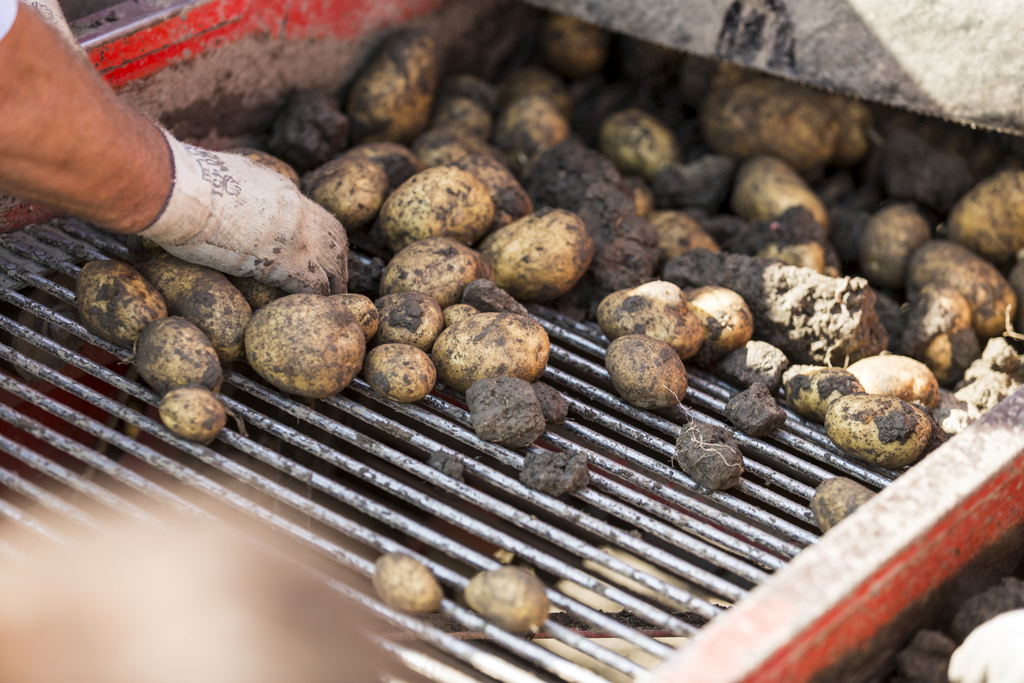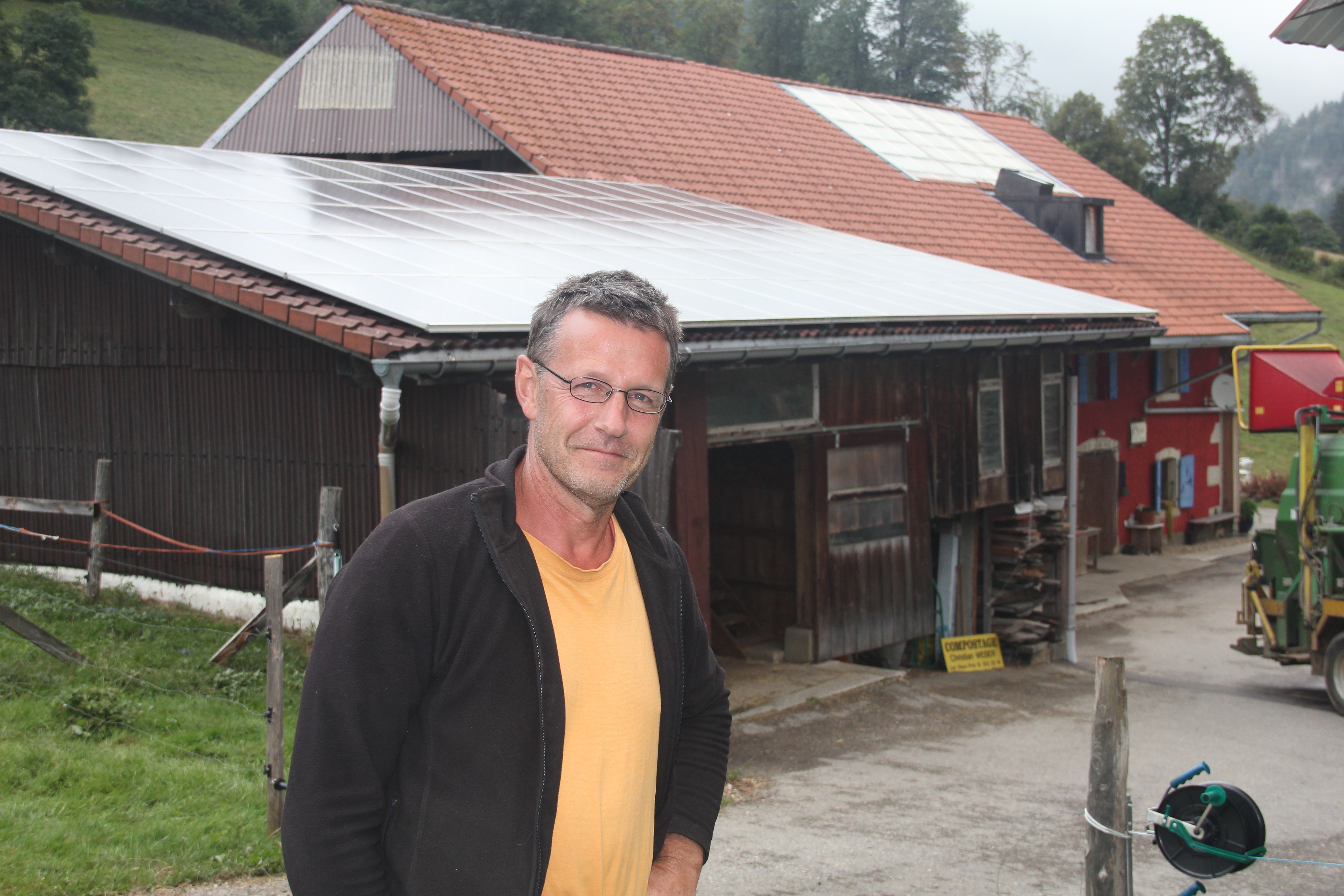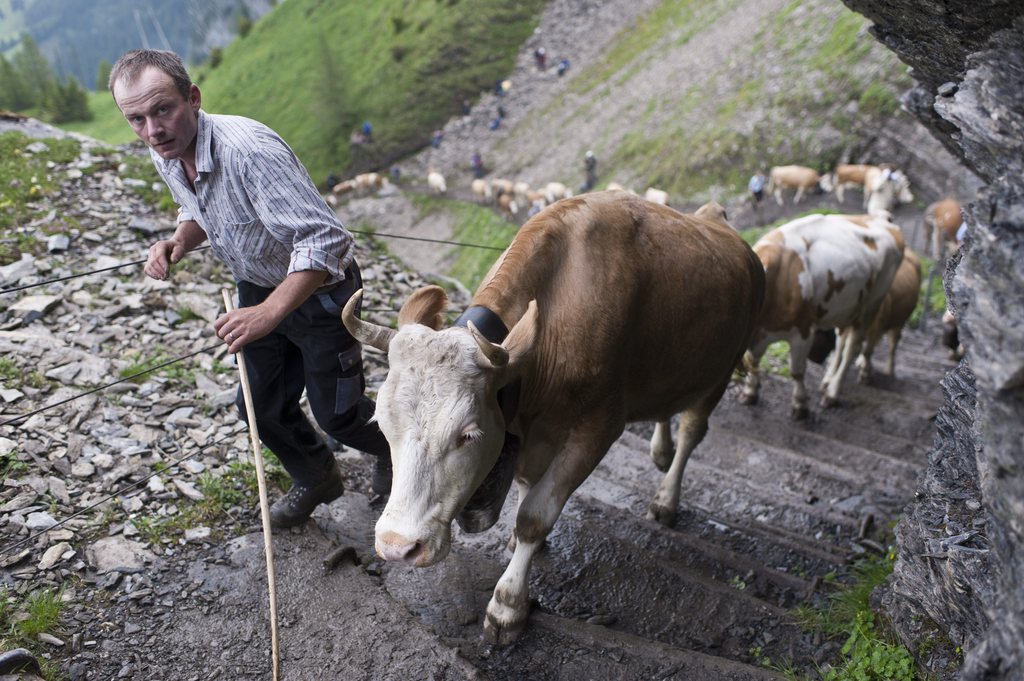Site-specific farming makes food eco-friendly

Farmers should use site-specific production, adapted to the given soil and climate, to gain the highest yield possible, according to a study comparing food from Switzerland with items from Germany and France.
Researchers concluded the production phase has the largest impact on how environmentally-friendly food is.
The entire value chain of bread, barley used as animal feed, potatoes, cheese and beef was assessed in the study carried out by the research institute Agroscope, for the Federal Office for Agriculture. It found that cheese and potatoes from Switzerland cause less damage to the environment than imports, but the situation was not so clear for bread made from wheat, barley animal feed and beef.
The production of raw materials, the cultivation of crops, the production of milk and meat, alongside the storage, processing and transport to the point of sale in Switzerland, were all taken into account. Potatoes from the Netherlands, cheese from Italy and Brazilian beef were also included in the comparison.
Cheese and potatoes from Switzerland for the most part ranked higher than imports. The researchers put this down to the good conditions location-wise in Switzerland for milk production. Good grass growth allowed milk to be produced in an ecologically efficient way, using less concentrated animal feed.
In the case of Swiss potatoes, their environmental assessment was good, as transport distances from the field to the shop were shorter than for vegetables brought in from abroad. The yield per unit-area is high and the environmental impact per kilogram, comparatively low.
Transport had a negative impact on other food items looked at as part of the study, those that were flown in by plane, such as Brazilian beef, did badly on this point.
Some food types did not have such a clear conclusion however. While German beef, for example, performed better in the study than Swiss in terms of water pollution and over-fertilisation, it underperformed due to the use of pesticides on the land and deforestation.

In compliance with the JTI standards
More: SWI swissinfo.ch certified by the Journalism Trust Initiative


You can find an overview of ongoing debates with our journalists here. Please join us!
If you want to start a conversation about a topic raised in this article or want to report factual errors, email us at english@swissinfo.ch.